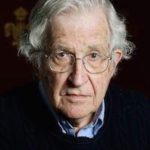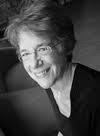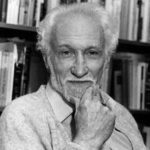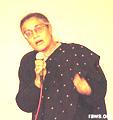Be the first to review “The ‘Peace Process’ in the Middle East” Cancel reply
The ‘Peace Process’ in the Middle East
2 CDs
The signing of the Declaration of Principles between Israel and the PLO in September 1993 was celebrated with great fanfare. At last, long-time adversaries were settling their differences. The U.S.-sponsored peace process was a success. A lot has happened since that White House ceremony. The participants received Nobel Peace Prizes. Arafat sits on an uneasy throne in Gaza. Hamas threatens his reign. Elections have been postponed. Israeli settlers and troops remain in the West Bank and Gaza. The litany of violence continues. The real history of the conflict has been largely obscured. In general, whatever the U.S. proposes is by definition the peace process. Non-U.S. proposals disappear from the public record. Much of the media coverage is disinformation laced with anti-Palestinian bias. In the prevailing Orwellian framework, “moderates” are those who support U.S. positions; “extremists” are those who don’t fall into line behind Washington. In part one, Prof. Chomsky examines some of the misperceptions, myths and hidden history of the Israel-Palestinian issue and the crucial role of U.S. policy. He argues that U.S. interest in Mideast oil transcends every other concern. In order to secure its power, the U.S. constructed a strategic alliance to police the region. It was important that an Arab facade cover U.S. intentions. Of course, when the local cops on the beat can’t keep order, then Washington moves in with massive force, as it did in the Gulf War. In part two, he engages the audience in a lively question-and-answer period.
Speaker

Noam Chomsky
Noam Chomsky, by any measure, has led a most extraordinary life. In one index he is ranked as the eighth most cited person in history, right up there with Aristotle, Shakespeare, Marx, Plato and Freud. His contributions to modern linguistics are legendary. In addition to his pioneering work in that field, he has been a leading voice for peace and social justice for many decades. Chris Hedges says he is “America’s greatest intellectual” who “makes the powerful, as well as their liberal apologists, deeply uncomfortable.” The New Statesman calls him “the conscience of the American people.” He is Professor Emeritus in the Department of Linguistics and Philosophy at MIT and Laureate Professor of Linguistics and Haury Chair in the Program in Environment and Social Justice at the University of Arizona. At 95, he continues to inform and inspire people all over the world. He is the author of scores of books, his latest are Consequences of Capitalism, Chronicles of Dissent and Notes on Resistance.







Reviews
There are no reviews yet.